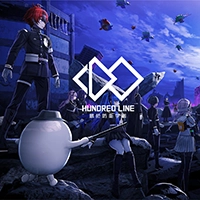
Castaway Paradise is an Animal Crossing clone, plain and simple. I’m generally hesitant to use such terminology when describing a game. After all, it’s a minimal-effort explanation that often needs to discuss nuances further. But in the case of Castaway Paradise, it can’t be helped.
The Castaway Paradies team makes no secret of cloning AC to give credit where credit is due. Indeed, the publisher says they are “Inspired by Nintendo,” while the developer says point blank, “It’s like Animal Crossing!” I’m taking them up on the comparison since they’ve invited me to do so.
A good clone doesn’t just try to imitate its source material; it tries to match or surpass it. A good example — with Switch representation — is Arkanoid’s emulation of Breakout. Castaway Paradise can’t surpass AC, but can it come close to matching it, offering a fun alternative?
To be clear, I’m writing this review as a fan of Nintendo’s social sim. I’ve been hooked from Wild World on the DS to recent mainline entries like New Leaf and New Horizons. Even spinoffs like amiibo Festival and Happy Home Designer (the latter whose poster graces my home office) charmed me. It’s partly why I agreed to take on Castaway Paradise, hoping it could capture some of that magic so to speak. But there’s also the question of how this game will fare for those without AC experience.
Not much is here. A storm marrons you on a tropical island. Being covered in kelp is a mildly clever way of concealing if you’re a boy or a girl until you select it. The mayor puts you to work immediately, asking you to pick up litter, which doesn’t make for the most charming intros. Let’s clean up first!
Once the tutorial ends, you can start meeting (and helping) the island residents (all animals). Chit-chatting with them doesn’t add to any overall story per se, but there are some interesting topics for discussion. The length of conversations can vary, as does the animal’s friendliness, but chatting will soon give way to gameplay such as fetch quests. Speaking of…
So you already know from the intro. that there are many similarities between this game and Animal Crossing. Besides animal chatting, you can customize your village, accessorize yourself, and work on your green thumb. You can even collect and donate a variety of fish and insects to Blathers’, I mean Harold’s museum. Lastly, you can also enjoy the different seasons; I’m writing this in Autumn, and I agree with the game that it’s “the most amazing season of the year.” All this sounds familiar, and there are even more comparable elements. Sadly, they are weaker variations.
Unlocking achievements, completing daily challenges, earning rewards, gaining experience to level up, spending in-game currency on time-sensitive deals, and having to unlock new parts of the island could attract completionists. Still, the implementation feels a bit odd for this type of game, and it comes off more like busy work than entertaining gameplay. Content isn’t an issue; it’s the question of whether it’s compelling or not.
A two-fold meaning, as you will farm for experience and currency. Farming seems to be more emphasized here, for better or worse. It’s likely the latter, as the Switch has become saturated with farming sims. But if you wanna bust out your virtual rakes, “evolve” crops, and earn puny achievements — “Lettuce turnip the beet,” — you’ll be kept busy.
When I first started playing Castaway Paradise, I thought it looked like a mobile game from 2015. I was close, as it actually started as a Facebook game a year earlier. The 2014 visuals present bland polygons, dull colors, and scant animation. It has a blocky, cheap, generic look that some will be okay with, but that missed the mark with me.
Even though it’s a slow-paced game, those who are frame rate sensitive will notice some issues, too. It is slow. You can’t even run — just walk. Heck, even swinging my net to catch bugs — already no easy task — is slow and stuttery.
At least the music, while repetitive, is pleasant. It sounds like it should be accompanying a platformer, but I liked it. You can turn it off if that’s your preference. Some of the sound effects are a bit shrill, but the catchy tunes overshadow them in a good way.
The Switch was late to the party with the oldie that is Castaway Party (and we’re even later with our review). It might’ve carved a niche on other systems, but how can it on a hybrid system that already plays host to Animal Crossing? I’m sure the devs hope this game will attract AC players; I suspect the opposite. Why play this when you have something better in all respects? Who would deliberately seek this out?
The humble origins of Castaway Paradise show, and it’s a tough sell. For a parent on a budget with a youngster looking for an Animal Crossing-ish game, this could be an enjoyable enough distraction for a bit, and you can even find it physically. However, the tasks will soon grow dull, more time-wasting than entertaining variety. So you’re better off saving for the real deal.
Castaway Paradise gets a 5/10.